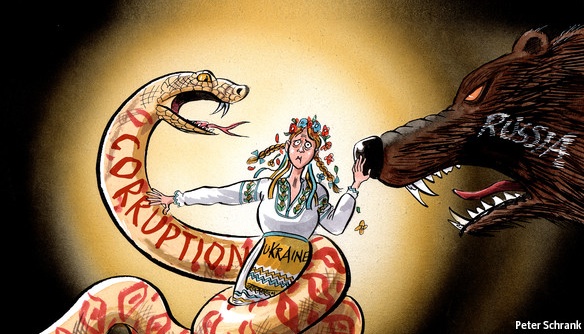Robert Parry writes: Ukraine’s new Finance Minister Natalie Jaresko, who has become the face of reform for the U.S.-backed regime in Kiev and will be a key figure handling billions of dollars in Western financial aid, was at the center of insider deals and other questionable activities when she ran a $150 million U.S.-taxpayer-financed investment fund.
Prior to taking Ukrainian citizenship and becoming Finance Minister last December, Jaresko was a former U.S. diplomat who served as chief executive officer of the Western NIS Enterprise Fund (WNISEF), which was created by Congress in the 1990s and overseen by the U.S. Agency for International Development (U.S. AID) to help jumpstart an investment economy in Ukraine.
But Jaresko, who was limited to making $150,000 a year at WNISEF under the U.S. AID grant agreement, managed to earn more than that amount, reporting in 2004 that she was paid $383,259 along with $67,415 in expenses.
Jaresko formed HCA and EEGF with two other WNISEF officers, Mark Iwashko and Lenna Koszarny. They also started a third firm, Horizon Capital Advisors, which “serves as a sub-advisor to the Investment Manager, HCA.
From 2007 to 2011, WNISEF co-invested $4.25 million with EEGF in Kerameya LLC, a Ukrainian brick manufacturer, and WNISEF sold EEGF 15.63 percent of Moldova’s Fincombank for $5 million, the report said. It also listed extensive exchanges of personnel and equipment between WNISEF and Horizon Capital.
Prior to the coup and the resulting civil war, Jaresko’s WNISEF was generously spreading money around. The “long-term equity incentive plan” was “not compensation from Government Grant funds but a separately USAID-approved incentive plan funded from investment sales proceeds”.
The filing also said the bonuses were paid regardless of whether the overall fund was making money, noting that this “compensation was not contingent on revenues or net earnings, but rather on a profitable exit of a portfolio company that exceeds the baseline value set by the board of directors and approved by USAID” – with Jaresko also serving as a director on the board responsible for setting those baseline values.
Despite ethical questions, Jaresko is cited by the New York Times has sharing American vaues. Ar Davos she castigated Russian President Vladimir Putin:
Jaresko’s ex husband Figlus provided a narrative of events as he saw them as a limited partner in EEGF, saying he initially “believed everything she [Jaresko] was doing, you know, was proper.” Later, however, Figlus “learned that Jaresko began borrowing money from HCA REDACTED.
Last December, Jaresko had resigned from her WNISEF-related positions, taken Ukrainian citizenship and started her new job as Ukraine’s Finance Minister.
Showing how much Jaresko’s network is penetrating the new Ukrainian government, another associate, Estonian Jaanika Merilo, has been brought on to handle Ukraine’s foreign investments. Merilo’s Ukrainian Venture Capital and Private Equity Association (UVCA), which is committed to “representing interests of private equity investors to policymakers and improving the investment and business climate in Ukraine,” included Jaresko’s Horizon Capital as a founder.
The question remains whether Jaresko’s is the right kind of experience to handle IMF money and whether the money will go to help the impoverished people of Ukraine or simply wind up lining the pockets of the well-heeled and the well-connected. Finance Between the Bullets

